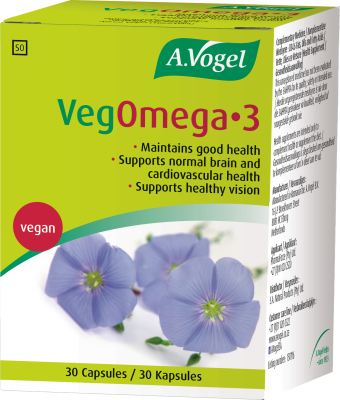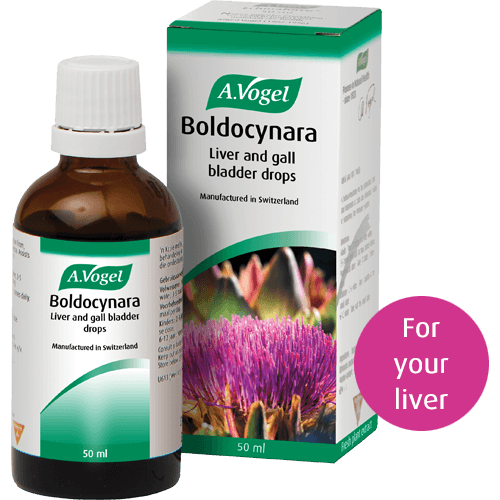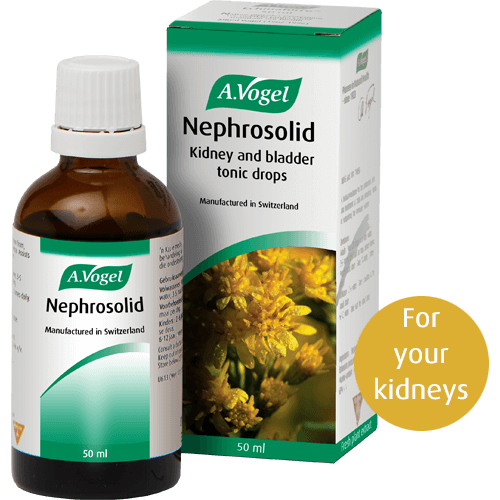
Veg Omega 3
Support brain function & health with Vegan Omega 3
- 100% vegetarian-friendly.
- Not derived from fish or other animal sources.
- Made from fresh plants.
- One of the smallest capsules on the market.
- Sugar-free, gluten-free and lactose-free.
Our Vegan Omega 3 is a source of omega-3 fatty acids and Alpha-Linolenic Acid (ALA) for the maintenance of good health.
Adults and children over 12:
For the maintenance of good health:
1 Capsule daily.
For the maintenance of normal vision, brain and cardiovascular health/function:
4 Capsules daily.
Pregnancy and breastfeeding: (Contributes to normal development of the eye of the foetus and breastfed infants)
4 Capsules daily.
Children 2 - 12:
For the maintenance of good health:
1 Capsule daily.
To support brain, eye and nerve development:
2 Capsules daily. Take capsules with water, chew or squeeze the contents of the capsule over food.
Each capsule contains:
Linum usitatissimum (Flaxseed oil) 400 mg
providing alpha-linolenic acid (ALA) 200mg;
Schizochytrium senso lato oil (DHA algae oil) 214 mg
providing docosahexaenoic acid (DHA) 75 mg
eicosapentaenoic acid (EPA) 1,9 mg
Sugar-free
In a nutshell, because our intake of Omega 6 fatty acids is too high causing an imbalance. Its estimated that many of us have 20 times the amount of omega-6 in our systems as omega-3, yet it is believed that a ratio of 3:1 Omega- 6 to Omega-3 is the ideal for our heart health.
Omega-6 fatty acids are also polyunsaturated fatty acids that are also essential fatty acids , meaning that we can’t make them and have to obtain them from food. Plants store most of the Omega 6 fat in their seeds as linoleic acid, which they convert to alpha linolenic acid (ALA) upon germination. BUT because the use of seed oils has increased in Western countries and our livestock are fed on grains instead of grasses, linoleic acid has become much more prevalent in our diets than ALA since the seeds are not getting to germination stage.
Also many food manufacturers remove Omega-3's from foods during processing in order to increase shelf life and product stability. Omega-6 fatty acids help lower LDL cholesterol (the ‘bad’ cholesterol), are protective against heart disease and also necessary for healthy skin.
However a key difference is that Omega-6 acids are pro-inflammatory whereas Omega-3 fatty acids are anti inflammatory. The problem is that these two fats compete to get into the cells of our bodies. If we have too much pro-inflammatory Omega-6's, the anti-inflammatory Omega-3’s can’t do the work that they need to do to fight the inflammation that more and more health professionals are recognizing as a root cause of many chronic diseases.
The amounts and balance of these fats in a person's diet may affect the body's eicosanoid-controlled functions, with effects on cardiovascular disease, triglycerides, blood pressure and arthritis. To counteract the increased inflammation in the body many people have to take aspirin and other NSAIDS (non-steroidal anti-inflammatory drugs) when simply correcting our Omega 3 to Omega 6 dietary intake could be the solution.
Omega-3 essential fatty acids positively affect mental health and flexibility, healthy aging and vitality, cardiovascular health, blood circulation, inflammatory diseases, weight management, mother's health and child’s development, visual functions ie macula degeneration:
- Omega 3 fatty acids are necessary for building cell membranes in the brain.
- Blood fat [triglycerides]. According to a number of studies, Omega 3 can also cut elevated triglyceride levels. Having high levels of this blood fat is a risk factor for heart disease. DHA alone has also been shown to lower triglycerides.
- Cardiovascular health. Omega-3 fatty acids may reduce arrhythmias, and people who take Omega-3 supplements after a heart attack may cut their risk of having another heart attack. Omega 3's benefit of increased plaque stability may help reduce fatal and non-fatal heart attacks and strokes.
- Arthritis and inflammatory rheumatic diseases. Studies indicate that EPA and DHA significantly reduced stiffness and joint pain. Omega-3 supplements also seem to boost the effectiveness of anti-inflammatory drugs.
- Depression. Researchers have found that cultures that eat foods with high levels of omega-3s have lower levels of depression. Omega-3 also seems to boost the effects of antidepressants.
- Prenatal health. EPA and DHA supplementation during pregnancy boosts the health of pregnant women and the development of their children. DHA appears to be important for visual and neurological development in infants with the result of better complex brain capacity: eye sight, concentration, hand/eye co-ordination, problem solving behaviour and possibly less ADD/ADHD, dyslexia.
- Asthma. Evidence suggests that a diet high in omega- 3s reduces inflammation, a key component in asthma. However, more studies are required to demonstrate whether Omega-3's improve lung function or help reduce the amount of medication needed to control asthma.
- Alzheimer's disease and dementia. Preliminary research suggests that Omega-3s may help protect against Alzheimer's disease and dementia. Recent studies have also evaluated whether the omega-3 supplement DHA can slow the decline seen in those with Alzheimer's dementia or in age-associated memory impairment. One recent study showed that DHA can be a beneficial supplement and may have a positive effect on gradual memory loss associated with aging.
The answer is very simple – are you aware of what’s happening in our oceans?
Fish oil does not fit into the philosophy of Alfred Vogel and is not an option because
- To produce 25 kg of fish oil 1000 kg of fish are needed.
- Fish oil may be contaminated with dioxins, heavy metals, polychlorinated biphenyls, and with radioactivity which is a current concern.
- Fish oil sources in many Omega 3 supplements are not clearly identified. Oils may be rancid or contain traces of solvent cleansing
- Many fish oils can cause gastrointestinal distress
- Fish oil supplements give an unpleasant fishy aftertaste.
- Many fish oils are esterified, which means the body cannot properly break down the fatty acids. A. Vogel Omega-3 complex is optimally bioavailable.
- Purity of the algae oil in A.Vogel Omega-3 is guaranteed. The linseed plants are organically grown.
Omega-3 fatty acids are "good fats" that are essential for the maintenance of good health. Like vitamins and minerals, omega-3 must be included in our diet as our body does not produce it.
The three main omega-3 fatty acids are:
- Alpha-Linolenic acid (ALA)
- Eicosapentaenic acid (EPA)
- Docosahexaenic acid (DHA)
Our Vegan Omega 3 is made from:
- Linseed oil: extra virgin and cold-pressed from fresh plants
- Seaweed oil from fresh algae
- Natural vitamin E to keep the fatty acids from going rancid
- Natural peppermint oil to mask the typical seaweed odour



